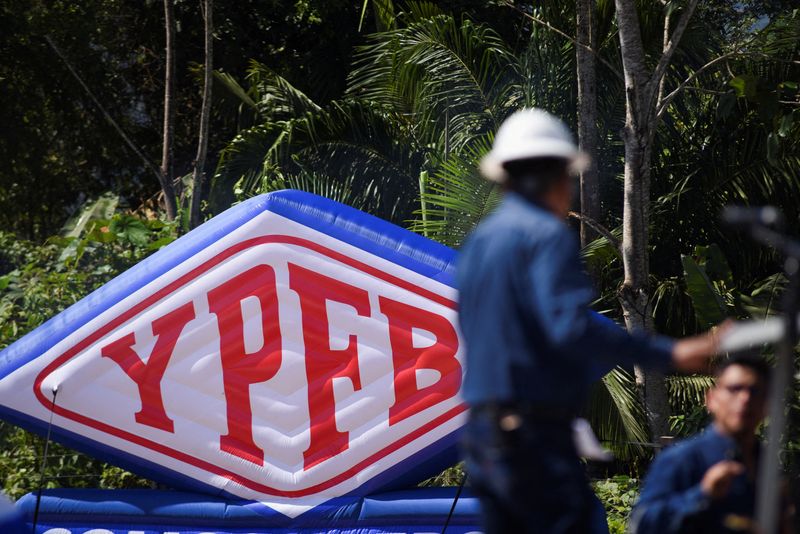
By Lucinda Elliott
MONTEVIDEO (Reuters) – Bolivia’s state-run energy firm YPFB is in talks to restart gas exports to Argentina amid a surge in demand spurred by a summer heat wave, underscoring the challenge for the government in Buenos Aires as it looks to become energy self-sufficient.
“We are in a negotiation with Argentina to create a spot contract,” YPFB chief Armin Dorgathen Tapia told Reuters on Friday by phone. The talks are previously unreported.
Natural gas exports from Bolivia to Argentina ended in September after almost two decades, as Argentina ramped up domestic production from its huge Vaca Muerta shale formation and started shifting towards becoming a net energy exporter.
Bolivia’s gas production has also been dwindling over the last decade with few new discoveries. Since last year, Yacimientos Petroliferos Fiscales Bolivianos (YPFB) no longer has an active supply contract with Argentina.
But extreme heat that struck Buenos Aires and the surrounding regions this week has led to an uptick in energy demand, as Argentines crank up air conditioners and fans, putting pressure on domestic supplies.
Bolivia has the capacity to send gas to Argentina as part of a potential new short-term spot contract lasting between six and 12 months, the YPFB president said.
Bolivia’s gas supplies are already committed to neighboring Brazil as part of a recent deal through to 2027 but some clients “don’t demand as much, so we can be flexible,” he said.
YPFB added that Bolivia could even generate electricity of its own to sell back to Argentina.
“There are solutions,” Tapia added.
YPFB cautioned, however, that an outstanding debt due to the firm from Argentina complicated future transactions. Argentina was due to make a payment on Jan. 10 totaling $10.6 million for supplies received, according to YPFB, but had not done so.

“Obviously it is difficult for us to have the confidence to be able to send gas to Argentina, knowing that they may not pay,” Tapia said.
Argentina’s government and state energy firm Enarsa did not immediately respond to Reuters requests for comment.
This post is originally published on INVESTING.



